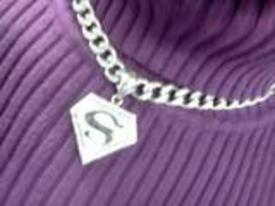Sodium levels

carlosgibson
Posts: 15 Member
This may seem like a silly question but I hear alot of people talking about sodium levels and that alot of people are trying to reduce the sodium levels in their diet... Why is sodium so bad for us and what sorts of foods have to worst levels of sodium... I've not heard of it before I joined this site and just wondered why it was bad. Please could you explain it in simple terms so I can understand and maybe start looking at what foods to avoid with high levels of sodium. Thanks guys.
0
Replies
-
Sodium helps keep my cardiologist in a nice home. LOL.
Bad for your heart. I have stopped added salt to foods when I'm cooking/eating. That's how I'm reducing.0 -
Sodium, salt, etc- it retains water and as southernbelle said, it causes many heart related issues. Your typical foods that will have a lot are salty junk- chips, popcorn with butter, soy sauce, and cheese has kind of a lot. And of course adding salt to your food. You can adjust your MFP diary settings to show your sodium levels if you are concerened or just interested in what your intake is.0
-
Bad for a lot of things, but mainly people think of the water retention which makes their scale weight fluctuate.0
-
Sodium helps regulate blood volume and aids in nerve impulse conduction and muscle contraction control. Therefore isolated incidences of excessive sodium intake results in edema (fluid retention) which puts stress on the cardiovascular system. Typically the kidneys compensate by excreting the resulting excess fluid. However, persistent excessive consumption greatly increases the risk of hypertension. Doctors and dietitians usually recommend no more than 2400 mg of sodium per day for the general population. I think MFP puts the maximum at 2500 mg per day.
You should be particularly vigilant about watching your sodium intake if there is a history of heart disease or renal disease in your family. I have worked with individuals on hemodialysis before. It is eye-opening for sure and makes one want to be particularly careful about sodium intake. It is not something to take lightly.
Prepackaged and processed foods have a high sodium content (sodium is a preservative) as well as canned foods. Try eat foods you have prepared yourself and eat lots of fruits and veggies. You can't avoid sodium, but you CAN keep your intake under control.
Hope this helps! Good luck! 0
Good luck! 0 -
Bad for your heart! I wish this web site could start tracking Sodium in foods we eat.0
-
Bad for your heart! I wish this web site could start tracking Sodium in foods we eat.
You can change your settings to track it in your Food Diary.0 -
this site does track soduim, go to food, then go settings, add soduim, Also anything processed has a lot of soduim, look at a can of soup or chili, some of it is off the charts!0
-
P.S. Individuals with hypertension are typically advised not to exceed 1500 mg and depending on the severity of HTN it may be less....0
-
Heart issues, hypertension and more can be caused by too much sodium intake.0
-
can you tell that to my husband, lol0
-
The previous posters are correct; it's bad for your heart and it makes your body hold on to water which means you'll weigh more.
Packaged food and restaurant meals are usually the worst sodium offenders. I read an article recently that said a very small percentage of the sodium we consume comes from the salt we personally add to our food. Many people eat too much sodium without knowing it because they think "I don't add salt to my food at the table or when I cook" but the problem is someone else has added it for you.
I watch nutritional labels religiously on packaged food, and I check company websites to see what's in restaurant meals. Whenever possible I try to eat fresh--fresh veggies, fruit, meat etc. I am often SHOCKED at the sodium in some food. For example, I used to buy frozen boneless, skinless chicken breasts because they're cheaper than fresh and I thought they were still "healthy"...later I realized the brand I bought had over 600mg of sodium per breast! That's almost a quarter of your daily recommended intake...Yowzers...I've since switched to fresh, although I hate that I pay more for it.0 -
There is a misconception here on sodium(salt). As with ALMOST everything, too much is not good for you. If you are a person who suffers from high blood pressure, then anything other than extremely small volumes of sodium need to be avoided. Basically, when your body gets a sodium, it causes the body to retain more water, which increases the volume of blood in your arteries. This increases your blood pressure. THEN, this can affect your body in ways such as heart attack, etc.
Basically, the rule goes as follows:
If you have high blood pressure, avoid sodium as much as possible. If you don't have high blood pressure, try to regulate your sodium by avoiding too many canned foods, pickled items, or frozen meals.0 -
P.S. Individuals with hypertension are typically advised not to exceed 1500 mg and depending on the severity of HTN it may be less....
Thanks for both of your posts. Great info!0 -
Too much sodium is bad for you and can cause strokes, too LITTLE upsets the electrolytes and is dangerous.
Most foods contain some sodium, whether it be a minute amount or quite a lot. If you stick to sensible eating and do not add extra salt, there should be no issues with too much sodium in a person's diet.0 -
For me, cutting down my sodium dropped 10lbs of water weight (I'm pregnant).0
-
After reading all the answers you will find that it is wise to track your sodium. Many people try to keep their sodium intake under 2300 mg per day.
Canned food and processed food are high in sodium. Strange...fruits and veggies are not.0 -
Thankyou all so much for taking the time to answer my question ...I now understand why sodium is so bad and will be definatly looking on the info of the things I eat from now on. Thanks again guys!! I really appreciate it!!0
-
Please take sodium seriously. I didn't know about it either, and I ended up with open heart surgery.:frown: In fact, this was my 2nd one 10 years apart. The first was blocked arteries due to bad eating fat. So afterwards, I watched my fats etc, didn't even know about sodium levels, then walla 10 yrs later, am told my heart surgery because sodium has effected my heart. The sodium increases water levels, which will end up effecting your lungs, then your heart, and kidneys. This is a kicker, I had used the Morton Lite Salt for 10 yrs. So it is important to watch your sodium levels. The doctor told me to never go over 2,000 a day. So you have some good advice here from other members, so please take it seriously. Have a great day and good luck on losing. :flowerforyou:0
This discussion has been closed.
Categories
- All Categories
- 1.4M Health, Wellness and Goals
- 398.1K Introduce Yourself
- 44.7K Getting Started
- 261K Health and Weight Loss
- 176.4K Food and Nutrition
- 47.7K Recipes
- 233K Fitness and Exercise
- 462 Sleep, Mindfulness and Overall Wellness
- 6.5K Goal: Maintaining Weight
- 8.7K Goal: Gaining Weight and Body Building
- 153.5K Motivation and Support
- 8.4K Challenges
- 1.4K Debate Club
- 96.5K Chit-Chat
- 2.6K Fun and Games
- 4.8K MyFitnessPal Information
- 12 News and Announcements
- 21 MyFitnessPal Academy
- 1.5K Feature Suggestions and Ideas
- 3.2K MyFitnessPal Tech Support Questions












